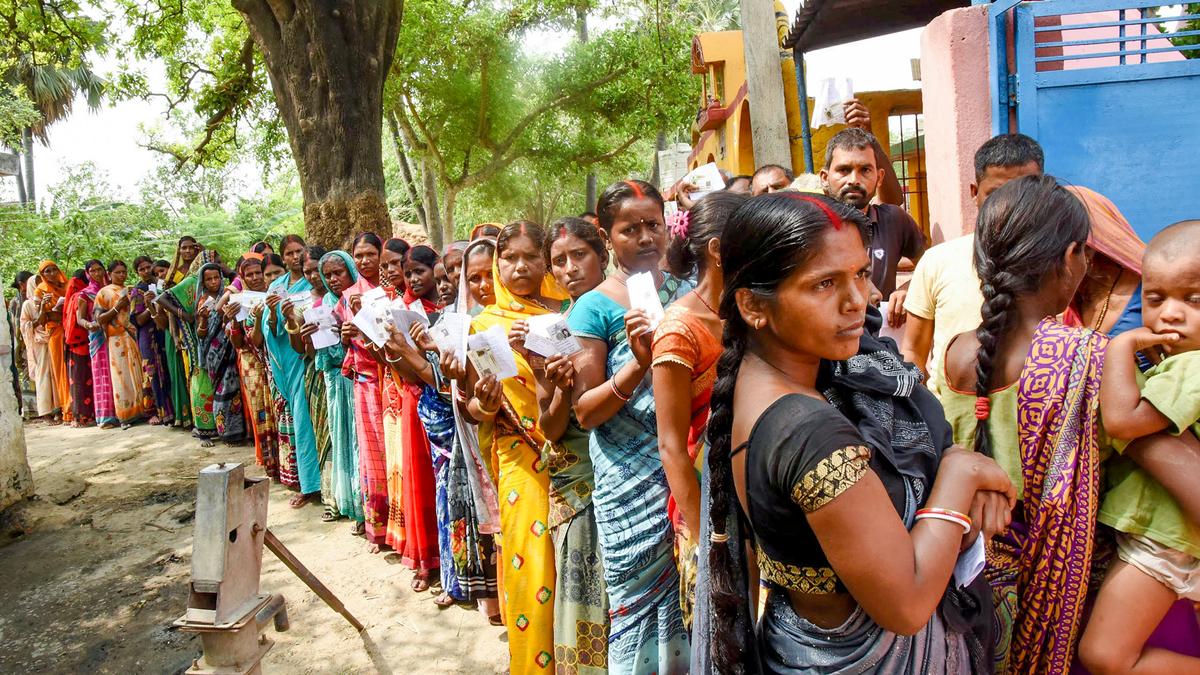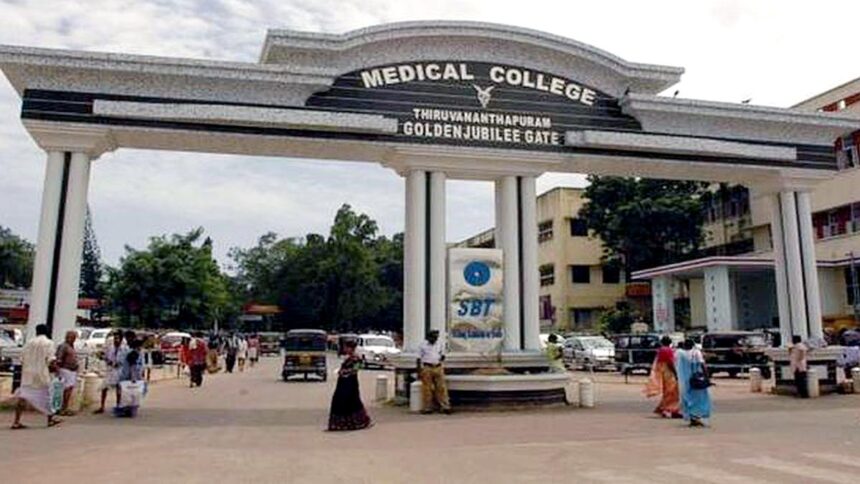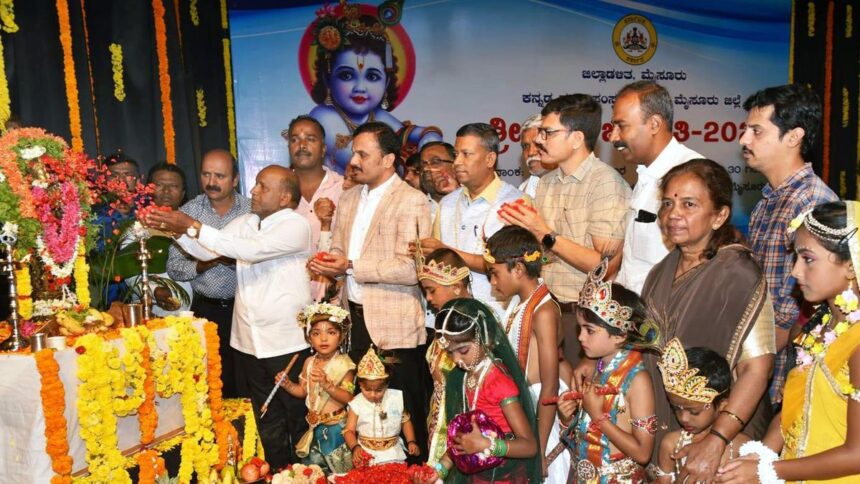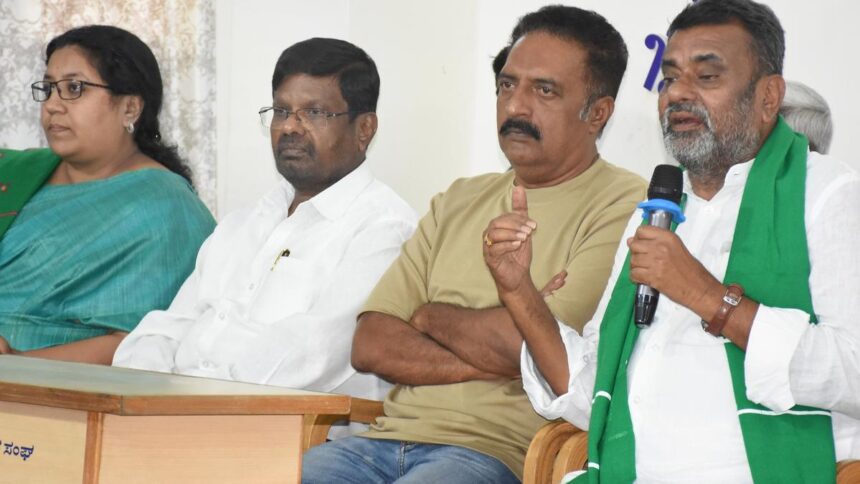
Voters displaying identity cards while standing in queue to cast their votes at a polling booth for the last phase of the General Elections, in Patna on June 1, 2024.
| Photo Credit: ANI
The story so far:
The enumeration phase of the Special Intensive Revision (SIR) of electoral rolls in Bihar has excluded around 65 lakh electors from the draft electoral roll published on August 1, 2025.
What did data show?
The aggregated data published by the Election Commission of India (EC) revealed permanent migration as the predominant cause for the deletion of names from the electoral roll as on June 24, 2025, which was the base roll for the SIR exercise. Out of the 65 lakh total deletions, over 55% entries were categorised as permanently shifted or untraceable, around 34% as deceased, and only 10.8% as multiple enrolments (Table 1).
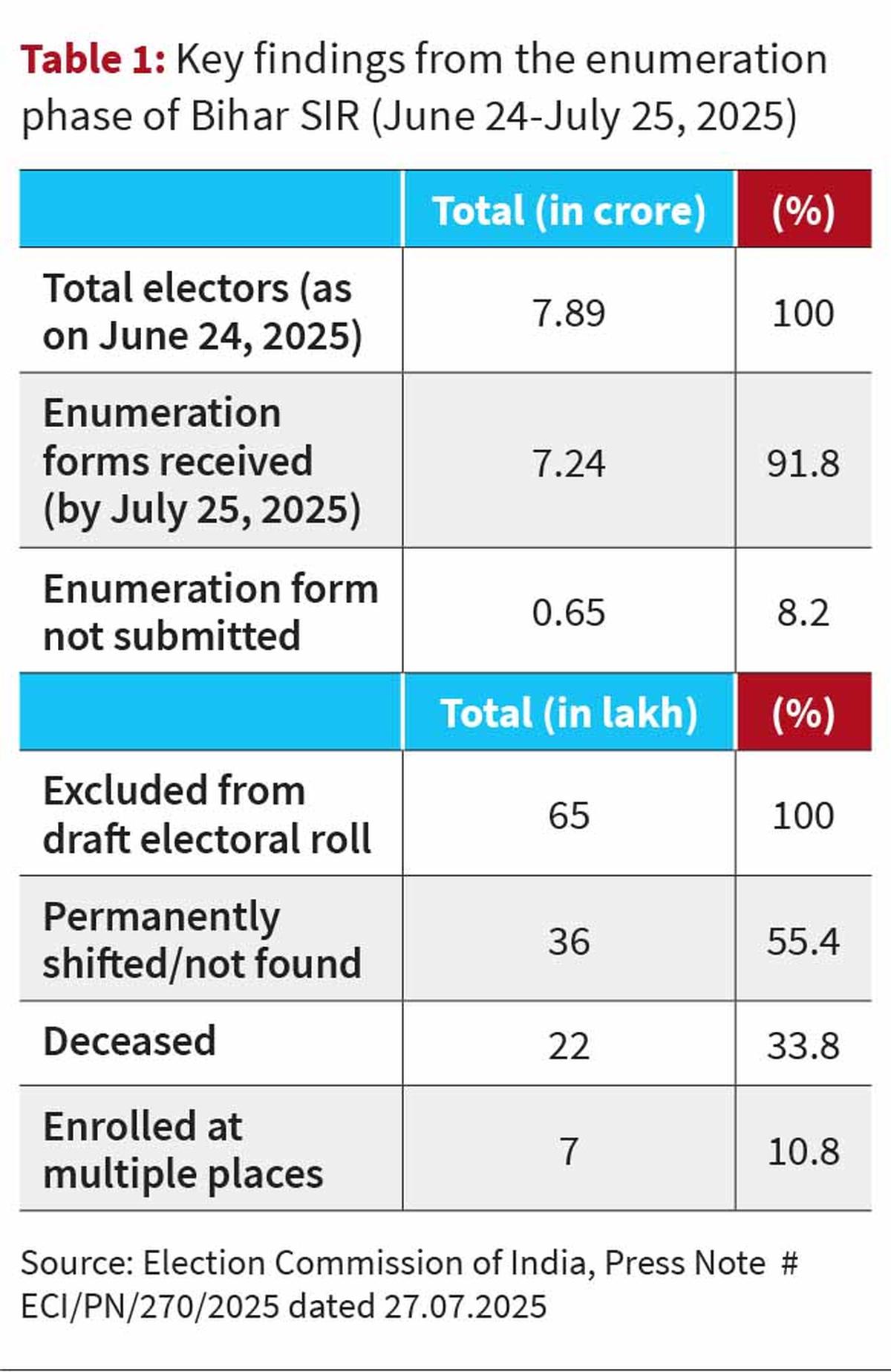
The publication of separate Assembly Constituency (AC)–wise lists of excluded or deleted electors, as directed by the Supreme Court, has made granular data analysis possible. The Hindu’s Data Point analysis based on the top nine ACs in Bihar with the most deletions has revealed that 56% of the 4.73 lakh aggregate deletions in these ACs were female electors. Out of the 2.68 lakh female electors excluded from these nine ACs, 46% were deleted for having permanently shifted, 27% for being untraceable, 20% as deceased and only 6% as multiple enrolments. 66% of the 1.23 lakh female electors deleted for having permanently shifted were in the 18 to 39 years age cohort (Table 2).
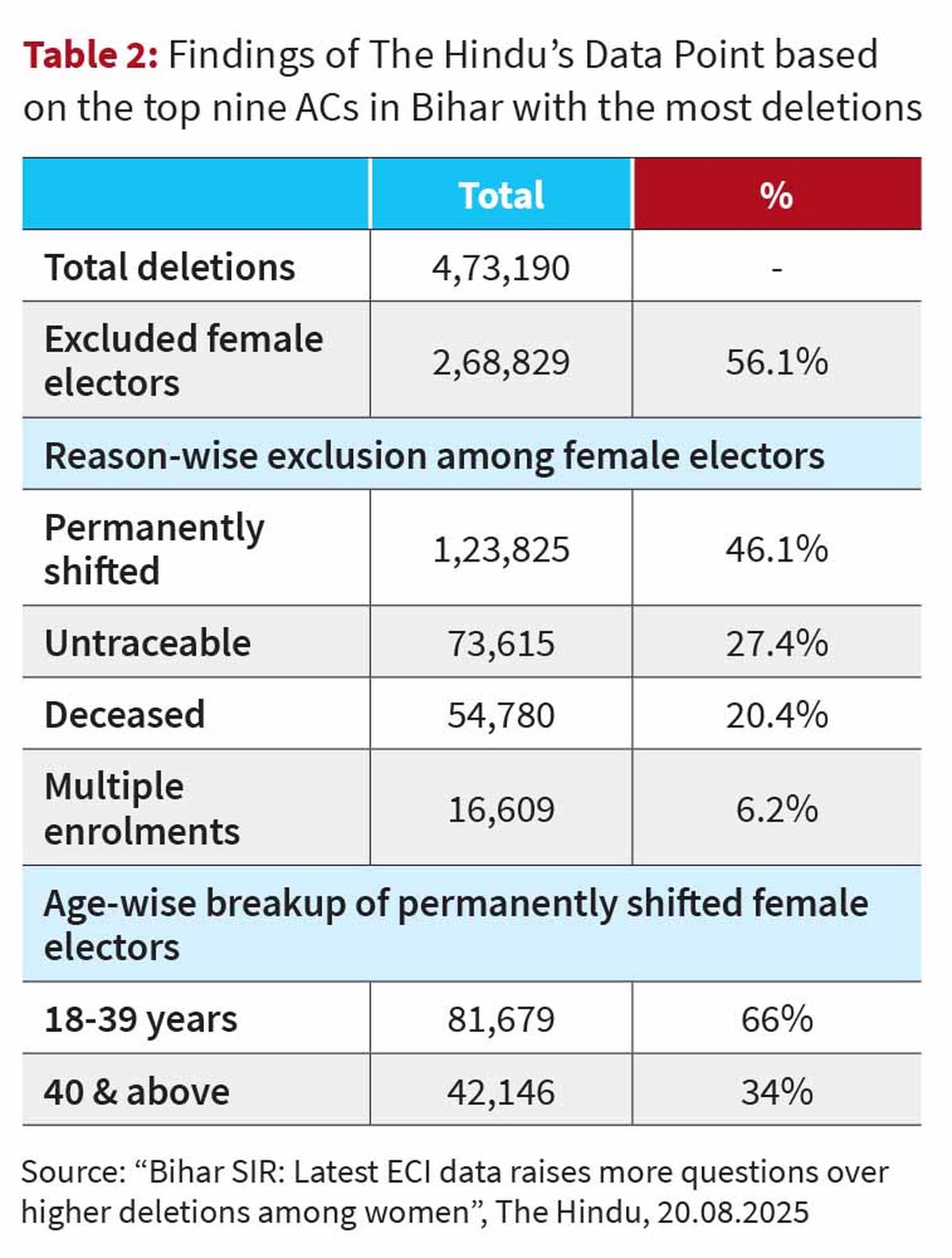
What does the mass deletion of female migrant voters imply?
The disproportionate deletion of ‘permanently shifted’ female electors in the 18–39 age group points to the en masse exclusion of married women, given that Census data shows marriage to be the predominant cause of female migration — not only in Bihar but across India. 85.7% of female migrants in Bihar migrated due to marriage, as per latest available Census data (2011). These findings not only establish a built-in exclusionary bias against migrants in the very design of the Bihar SIR 2025 process, but also a gender bias against female migrant electors, particularly young married women.
The eligibility criteria of a person to be registered in the electoral roll of a specific constituency is that they need to be “ordinarily resident” in said constituency as provided in the Representation of the People Act, 1950. However, the concept of “ordinary residence” has not been clearly defined anywhere in the statutes, leaving ample scope for arbitrary or erroneous deletions. The process followed under Bihar SIR, involving submission of a filled up enumeration form by existing electors within a 30 days window, has further added a new extra-legal criterion which is hostile towards migrants in general and migrant women in particular.
Can such deletion lead to disenfranchisement?
It is notable that the EC’s SIR order dated June 24, which highlights “frequent migration of population from one place to another on account of education, livelihood and other reasons” as a justification for the supposed “intensive verification drive to verify each person before enrolment as an elector” fails to even mention marriage, which is the most common ground for female migration in India. EC’s SIR data clearly reveals that deletions on account of multiple enrolments are far less than the number of deletions on account of migration. Such deletions of permanently shifted electors, without at least ensuring their enrolment in their current place of residence amounts to disenfranchisement.
The EC’s Manual on Electoral Rolls (March 2023, Document 10, Edition 2) states in Chapter 8 that, “Section 20 (7) of the Representation of the People Act, 1950 provides that the Electoral Registration Officer shall determine a question as to where a person is ordinary resident at any relevant time, with reference to all facts and to such rules as may be made by the Central Government in consultation with the Election Commission. The Central Government and the Election Commission have not made any rule on this subject till date.”
The decision of the Election Commission of India to initiate the SIR process in Bihar — a State with the highest inter-State out-migration rate in India as well as a high level of intra-State migration — without first addressing the legal and procedural ambiguities surrounding the status of migrant electors, especially those migrating because of marriage, has led to the en masse exclusion and disenfranchisement of migrant electors. The EC’s unwarranted obsession with “foreign illegal migrants” and citizenship determination has deflected it from addressing more relevant and critical issues.
What is the way forward?
While resolving the larger question of how to legally determine “ordinary residence” for migrant electors in general and marriage-driven migration in particular may take some time, immediate steps are required to prevent the unjust en masse exclusion of migrant electors in Bihar. The EC’s latest status update issued on August 21 reports that only 70,895 claims and objections and 2.28 lakh Form 6 applications (addition of new electors) have been filed till date. At this rate, a large bulk of 36 lakh electors deleted as permanently shifted or untraceable would remain excluded in the final electoral roll.
Extending the deadline for filing claims and objections by another 30 days, initiating a process of re-verification of the permanently shifted and untraceable categories, and ensuring mandatory re-enrolment of deleted migrant electors in their current constituency of residence may provide some relief. As far as female migrants are concerned, the decision to retain her name in the electoral roll of her natal household or be transferred to her marital household should rest with the female elector herself. It should not be imposed by the EC.
Prasenjit Bose is an economist and activist.
Published – August 22, 2025 08:30 am IST








